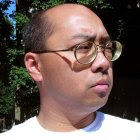I have embraced the idea of "a low-information diet", ever since I read about it in Timothy Ferriss' book "The 4-Hour Work Week". Truth be told, however, I've been struggling with my 'information intake' for years.
Ever since I was a kid, I have always been impressed with people who were well-informed. When I was an altar boy, I remember being flustered that I couldn't converse with the priests before mass. Other servers had no problems talking about politics or sports, but I sat there silent, not knowing how to get into the 'flow' of the conversation.
In high school, a friend and I were stopped by a television reporter in front of the train station. He posed us a question, and I was amazed at the ease with which my friend gave his thoughtful response. I remember not saying anything, and to this day I don't even remember what we could have been interviewed about.
As I grew older, I learned how to be more 'conversant', but I've never become 'well informed'. I learned how to form my own opinions, but mostly on light news (sports, entertainment). For many years, one of my standing resolutions was to "read the newspaper more", but every year that resolve was always the first to fade away. Flipping the pages and reading even just the headlines eventually began to feel like a chore.
In Ferriss' book, his chapter about "selective ignorance" is introduced with a quote by Herbert Simon, a political scientist and economist: "What information consumes is rather obvious: it consumes the attention of its recipients. Hence, a wealth of information creates a poverty of attention..." It's a striking quote, and it put me very much at ease.
Ferriss recommends an exercise where readers just ask others "what happened in the world that was important today." Eventually, he says, you'll learn that the answer doesn't affect you in the least. Instead, what is important is what's right in front of you: your family, the work you choose to do, your joys, your interests. Consuming the news takes time, our most precious commodity.
I don't get flustered anymore when someone sounds well-informed to me. If I get the chance, I ask them to tell me about what they know, instead of dwelling on my lack of knowledge on current events. A low-information diet is not for everyone, but I've found it quite liberating.
Sunday, January 27, 2013
Subscribe to:
Posts (Atom)

